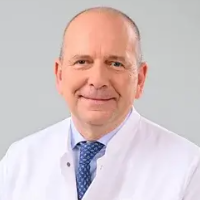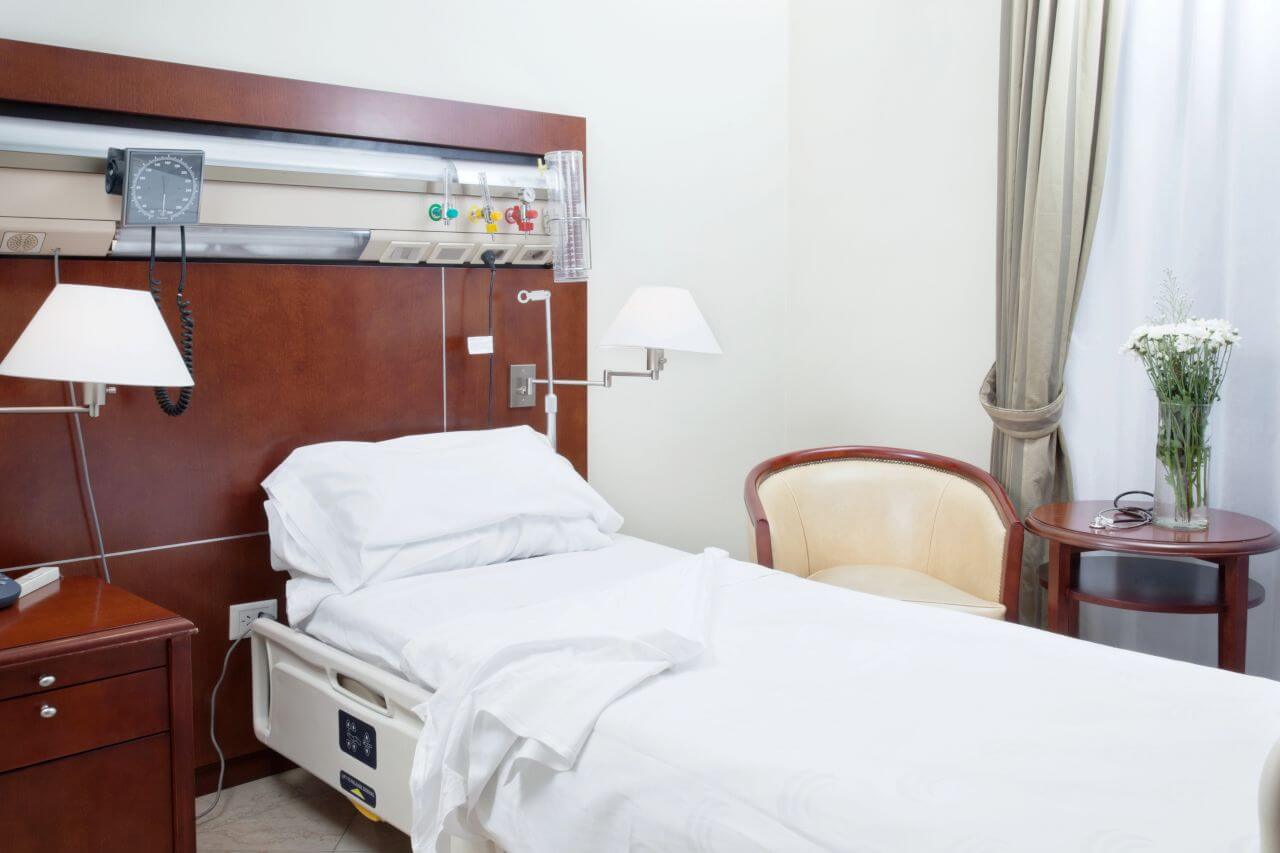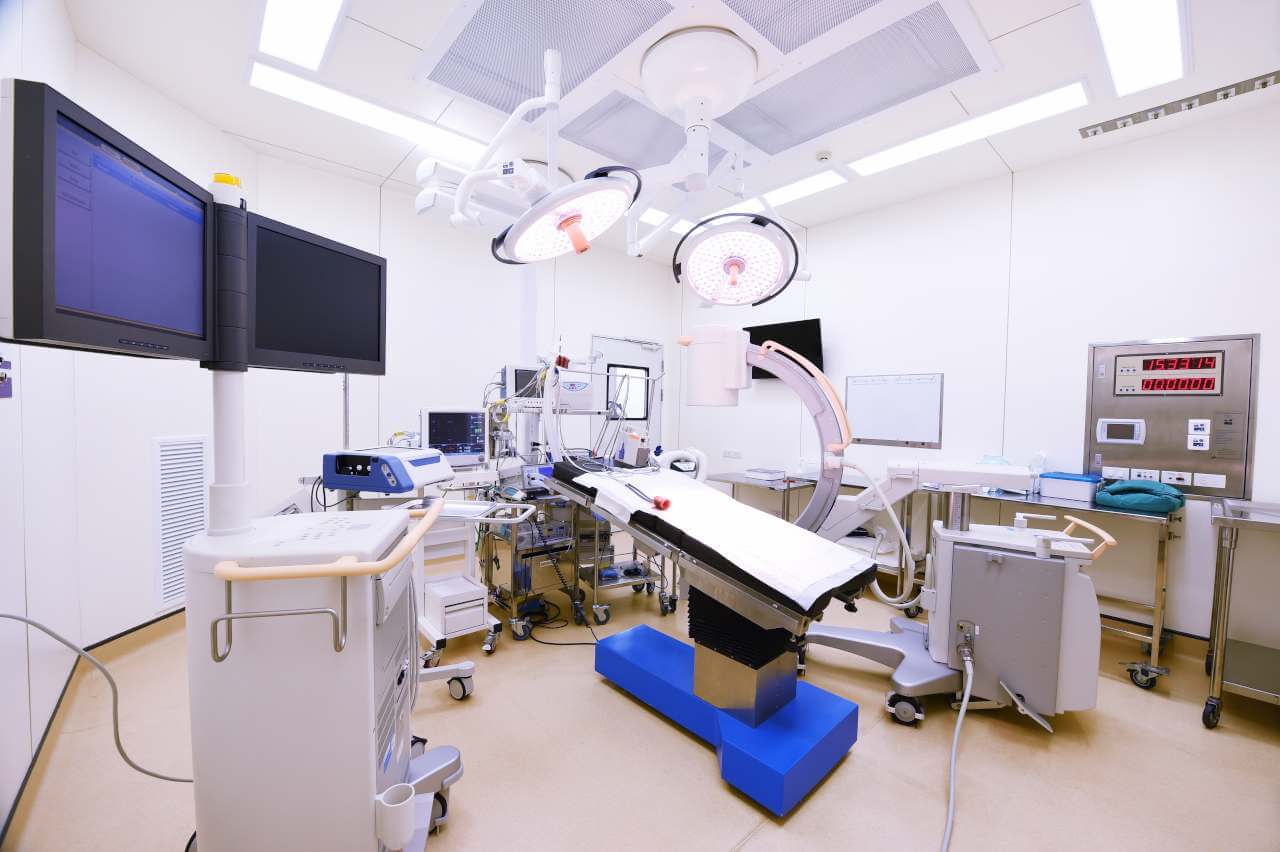
The program includes:
- Initial presentation in the clinic
- clinical history taking
- physical examination
- laboratory tests:
- complete blood count
- biochemical analysis of blood
- Lipid metabolism (HDL/LDL, cholesterol,
triglycerides Lip(a), homocysteine) - blood coagulation analysis (aPTT, PT, INR)
- inflammation indicators (CRP, ESR)
- metabolic status (uric acid, total glucose, HbA1c)
- cardiovascular disease risk markers
- kidney function test (creatinine, urea)
- TSH
- doppler/ duplex receptacles of lower extremities
- angio-MRI from aorta and of lower extremities
- duplex peripheral arteries
- preoperative care
- necrectomy and skin transplantation
- daily wound care
- vacuum dressing treatment
- symptomatic treatment
- control examinations
- the cost of essential medicines and materials
- nursing services
- full hospital accommodation
- developing of further guidance
Required documents
- Medical records
- US scan, MRI/CT scan (if available)
Service
You may also book:
 BookingHealth Price from:
BookingHealth Price from:
About the department
The Department of Vascular Surgery and Angiology at the Schoen Clinic Duesseldorf offers all the possibilities of modern medicine in the areas of its competence. The medical facility provides conservative, endovascular, and classical surgical treatment of vascular diseases, including rare and particularly complex pathologies of the arteries, veins, and lymphatic vessels. The department first opened its doors to patients in 1997, becoming one of the first health facilities of this kind in Germany. Today, the department has an excellent reputation and admits patients from Germany and many other countries around the world. The team of the department's doctors is especially interested in the treatment of peripheral occlusive arterial disease, aortic aneurysms, carotid artery stenosis, varicose veins, superficial venous thrombosis, and diabetic foot syndrome. Angiologists and vascular surgeons jointly consider the patient's clinical case and prescribe the optimal treatment, with conservative or endovascular treatment being performed if possible. The department has an in-house catheterization laboratory for endovascular interventions and an operating room for hybrid interventions (such operations combine endovascular and classical surgical techniques). The department has 30 beds for inpatients, while minor endovascular surgical procedures are performed on an outpatient basis. The Head Physician of the department is Dr. med. Udo Huberts.
The department's doctors regularly treat peripheral occlusive arterial disease. This pathology causes complete blockage or narrowing of the lower extremity arteries (rarely the upper limbs may be affected) due to atherosclerosis, which provokes impaired blood circulation and insufficient blood supply to the tissues in the lower extremities. The specialists at the medical facility successfully use conservative and surgical methods for the treatment of peripheral occlusive arterial disease. In the early stages, doctors recommend patients make lifestyle modifications, including a healthy diet, weight loss (in cases of excess body weight), regular physical activity, smoking cessation, etc. Drug therapy is also part of the treatment process. It mostly includes platelet aggregation inhibitors (drugs that prevent the formation of blood clots) and statins (cholesterol-lowering drugs). As peripheral occlusive arterial disease progresses, patients may experience pain while walking. In such cases, clinicians offer them specialized exercise programs for pain relief. The second-line treatment is balloon dilatation with stent implantation, thrombus aspiration, or thrombolysis. In cases where patients experience pain in the lower extremities even at rest, effective treatment results may only be achieved through surgery. The department's vascular surgeons perform thromboendarterectomy, affected artery prosthetic repair, and bypass surgery. The optimal type of surgical procedure for the patient is determined on an individual basis.
The department's specialists excel in treating abdominal and thoracic aortic aneurysms. They perform more than 1,500 interventions of this kind every year. The key focus is on minimally invasive surgery using innovative stent grafts, which are delivered to the pathological focus under imaging guidance through a puncture in the inguinal artery. Before the operation, vascular surgeons plan each stage of the intervention with the help of special computerized programs, thereby ensuring precise positioning of the stent graft. The duration of a hospital stay after endovascular treatment of aneurysms is 4-6 days. The patient is verticalized on the second day after surgery. In addition, there is no need for specialized rehabilitation. The department's physicians also perform classical open operations for aneurysms. For example, if the aneurysm is localized in close proximity to the heart, the patient is indicated for open surgery. It is performed by both vascular and cardiac surgeons.
Another important area of competence of the department's team of doctors is the provision of medical care for patients with varicose veins. Many people mistakenly believe that varicose veins are only an aesthetic problem, but the pathology also carries serious health risks. The disease may provoke the formation of blood clots, the development of chronic venous insufficiency, thrombophlebitis, trophic ulcers, and other severe complications. Conservative treatment for varicose veins involves wearing compression stockings, therapeutic exercises, and massage. In cases of severe symptoms and a high risk of complications, vascular surgeons consider surgical treatment options such as stripping, phlebectomy, mini-phlebectomy, radiofrequency ablation, endovenous laser therapy, or sclerotherapy. Surgical treatment for varicose veins is also performed in cases where patients do not suffer from the symptoms of the disease but are concerned about the aesthetic aspect of the problem. In most cases, surgical procedures for varicose veins are performed on an outpatient basis under local anesthesia.
The department's range of medical services includes:
- Diagnostics and treatment of peripheral occlusive arterial disease
- Conservative treatment
- Drug therapy with pills
- Balloon dilatation with stent implantation
- Thrombus aspiration
- Thrombolysis
- Surgical treatment
- Thromboendarterectomy
- Prosthetic repair of the affected artery
- Bypass surgery
- Conservative treatment
- Diagnostics and treatment of abdominal and thoracic aortic aneurysms
- Surgical treatment
- Endovascular surgery for stent graft implantation
- Hybrid operations (stent graft implantation in combination with bypass surgery)
- Classical open aortic prosthetic repair surgery
- Surgical treatment
- Diagnostics and treatment of varicose veins
- Conservative treatment
- Wearing compression stockings
- Physiotherapy
- Massage
- Surgical treatment
- Stripping
- Phlebectomy
- Mini-phlebectomy
- Radiofrequency ablation
- Endovenous laser therapy
- Sclerotherapy
- Conservative treatment
- Diagnostics and treatment of carotid artery stenosis
- Conservative treatment
- Drug therapy
- Surgical treatment
- Balloon dilatation with stent implantation (endovascular technique)
- Classical open surgery
- Conservative treatment
- Diagnostics and treatment of superficial venous thrombosis
- Conservative treatment
- Drug therapy
- Compression therapy
- Surgical treatment
- Thrombectomy
- Conservative treatment
- Diagnostics and treatment of diabetic foot syndrome
- Conservative treatment
- Surgical treatment
- Diagnostics and treatment of chronic non-healing wounds
- Conservative treatment
- Surgical treatment
- Diagnostics and treatment of inflammatory vascular diseases: primary and secondary vasculitides
- Conservative treatment
- Surgical treatment
- Diagnostics and treatment of other vascular diseases
Curriculum vitae
Professional Career
- Since 2024 Head Physician, Department of Vascular Surgery and Angiology, Schoen Clinic Duesseldorf.
- 2006 - 2023 Head Physician, Department of Vascular Surgery, St. Joseph's Hospital Hahn.
- 2002 - 2006 Managing Senior Physician, Department of Vascular Surgery and Thoracic Surgery, Asklepios Hospital Altona Hamburg.
- 1996 - 2002 Senior Physician, Department of Cardiothoracic Surgery, Krefeld Hospital.
Board Certification
- Board certification in Surgery, Vascular Surgery, and Endovascular Surgery.
Memberships in the Professional Societies
- 2015 German Society for Vascular Surgery Gefäßgesellschaft West.
- 2006 European Society for Vascular Surgery (ESVS).
- 2005 Professional Association of German Surgeons (BDC).
- 2002 German Society of Vascular Surgery (DGG).
- 1992 Association of Lower Rhine-West Westphalian Surgeons.
Photo of the doctor: (c) Schön Klinik Düsseldorf
About hospital
According to the reputable Focus magazine, the Schoen Clinic Duesseldorf is one of the top medical facilities in North Rhine-Westphalia and is also one of the best Spinal Surgery Centers in Germany.
The Schoen Clinic Duesseldorf is recognized as a leading medical facility that provides high-quality medical care with an emphasis on a humane attitude and understanding of each patient's individual needs. The clinic offers a range of medical specialties, including orthopedics, trauma surgery, spinal surgery, otolaryngology, cardiology, internal medicine, angiology, and vascular surgery.
Patients' health is in the safe hands of a highly qualified team of more than 590 physicians and nurses. The clinic treats more than 48,000 patients annually, which is a testament to the high level of patient satisfaction with medical services.
The clinic has a comfortable infrastructure, including modern diagnostic rooms, laboratories, an emergency medical care unit, therapeutic rooms, and operating rooms adapted for low-traumatic surgical interventions. It is worth noting that the clinic has a Center for Arthroplasty that is certified according to the EndoCert standards by the German Society for Orthopedics and Orthopedic Surgery (DGOOC). This is the most prestigious certificate in this medical field in Germany.
The Schoen Clinic Duesseldorf provides comprehensive medical care in accordance with international clinical standards, always taking into account the individual needs and wishes of each patient. The doctors strive to provide patients with the most effective and sparing treatment possible using the very latest therapeutic techniques.
Photo: (с) depositphotos
Accommodation in hospital
Patients rooms
Patients of the Schoen Clinic Duesseldorf live in comfortable single and double rooms designed in light colors. The rooms are furnished with a comfortable, automatically adjustable bed with an orthopedic mattress, a wardrobe, a table and chair, a TV set, a telephone, a mini-fridge, and a safe. Each patient room has an ensuite bathroom with a shower and toilet. The bathroom has changeable towels, a hairdryer, toiletries, and a bathrobe.
Meals and Menus
The patient and his accompanying person are offered three meals a day: breakfast, lunch, and dinner. The patient and his accompanying person have a choice of three set menus daily.
If, for some reason, you do not eat all the foods, you will be offered an individual menu. Please inform the medical staff about your dietary preferences prior to treatment.
Further details
Standard rooms include:
![]() Toilet
Toilet
![]() Shower
Shower
![]() Wi-Fi
Wi-Fi
![]() TV
TV
Accompanying person
Your accompanying person may stay with you in your patient room or at the hotel of your choice during the inpatient program.
Hotel
You may stay at the hotel of your choice during the outpatient program. Our managers will support you for selecting the best option.





